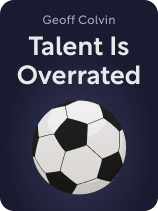

This article is an excerpt from the Shortform book guide to "Talent Is Overrated" by Geoff Colvin. Shortform has the world's best summaries and analyses of books you should be reading.
Like this article? Sign up for a free trial here.
What is deliberate practice, and how can you use it to get better at something? What can this style of practicing do for your performance?
Deliberate practice is a method of identifying your weaknesses and specifically targeting them, instead of generally practicing an entire set of skills. This process focuses your energy on where you need improvement the most.
Continue reading to learn how deliberate practice works.
Understanding Deliberate Practice
What is deliberate practice? Deliberate practice involves continually identifying the weak points of your performance and working to improve them. As you strengthen each weak point, your overall performance improves.
Everyone deliberately practices when first learning a new activity. However, most people stop doing so once they can comfortably perform the activity. It’s easier to let instinct and muscle memory take over, so they stop actively correcting their weak points and their performance stops improving. In contrast, excellent performers continue deliberately practicing until their performance improves far above average.
Take swimming, for example. When you first learned how to swim, you consciously practiced it: You had to actively think about how the different strokes worked and whether you were moving your limbs correctly. Now that you’re comfortable swimming, though, you don’t think about it as much. You already know how to do the strokes, and you can largely rely on muscle memory to execute them. You’re not the fastest or the most graceful, but you can have fun in the pool, so you don’t worry about perfecting your technique. Thus, you remain a decent but unremarkable swimmer. Olympic swimmers, on the other hand, devote their lives to perfecting their technique. They constantly monitor and improve their every movement, and this focus lets them excel.
| Stigmatizing Failure Prevents Deliberate Practice In Black Box Thinking, Matthew Syed suggests that people in certain organizations or professions are more likely to stop claiming their mistakes (or identifying their weak spots) than others. Specifically, he says this is true for people in professions that require a high level of education, such as doctors and lawyers. Rather than letting instinct and muscle memory take over, these individuals stop claiming their mistakes because the organization they work for stigmatizes failure. People expect you to perform excellently in these professions. If you make a mistake, they’ll doubt your qualifications for your position, potentially putting your career at risk. Thus, you try to protect yourself by refusing to admit your mistakes. However, this means you can’t correct them or improve, hampering both your performance and the organization’s. Syed says that one method of fixing this problem is having systems for the organization to carefully investigate any mistakes people make. This ensures that the organization has all the information it needs to address mistakes in a fair and consistent way. In turn, this fairness inspires trust in the organization: You don’t have to worry about being disproportionately penalized for your mistakes, so you’re free to admit them and work to improve. |

———End of Preview———
Like what you just read? Read the rest of the world's best book summary and analysis of Geoff Colvin's "Talent Is Overrated" at Shortform.
Here's what you'll find in our full Talent Is Overrated summary:
- How some people can perform at a globally impressive level while the average person can't
- Why you need to shift your mindset from talent to training
- How to use the two approaches to deliberate practice successfully






